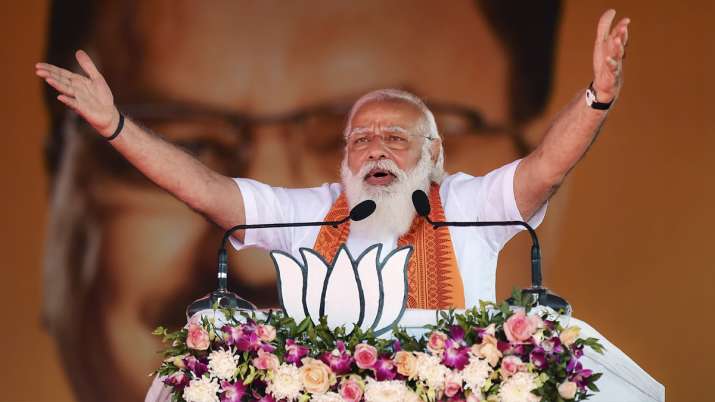‘99 out’ PM hailed for his humble background; commitment to Indian values.
Thirty years ago, around this time of the year, Pamulaparti Venkata Narasimha Rao, popularly known as “PV”, accidentally became the 9th Prime Minister of India a week prior to his 70th birthday. He invited a group of editors of the capital’s newspapers for a cup of tea at 7 Race Course Road (now renamed Lok Kalyan Marg) to share his vision. Epoch-breaking reforms were on anvil. This writer was among the privileged invitees (as Editor of National Herald). Someone asked PV how he felt on becoming the PM. “I feel like a 99 out batsman” was the prompt reply. This response reflected the man: he was not flamboyant; he cherished the achievement of a player who falls short by one run from earning the glory of scoring a century. Clearly, he was aware of the steep climb ahead. He ran a successful minority government, which survived many no-confidence motions on the Lok Sabha floor and became the first ever Congress leader outside the Nehru-Gandhi fold to complete five years in office. Licence-permit raj was sent into the dustbin of history; economic reforms initiated with a bang, and ground was cleared for a new nuclear policy, which fructified when his successor, Atal Bihari Vajpayee authorised the Bomb. (Vajpayee acknowledged that it was PV who told him that preparations for the blast were at an advanced stage—he needs to press the button.)
Apart from 30th anniversary of reforms, this week also marked the centennial of PV’s birth: His hundredth birth anniversary on 28 June was a non-event for the official Congress establishment. It elicited glowing tribute from his successor, BJP’s Narendra Modi, who tweeted his tribute to PV’s “extensive contribution to national development”. The Prime Minister tagged with his tweet the clip of his Mann ki Baat radio speech delivered a year back, which heralded the centennial of the architect of economic reform and the harbinger of nuclear policy. In this clip, of the duration of more than two minutes, Modi, referring to the fact that young PV at age 17 had stood up in British India to uphold the right to sing “Vande Mataram”, described him as a person who hailed from “bahut hi sadharan prashtbhoomi” (humble origins) and was committed to “Indian values”. It was a touching tribute of a politician who belongs to a stream diametrically opposite to PV’s Congress background, but who shares PV’s simple moorings and commitment to a vibrant, progressive India.
AICC did not issue a communiqué. The Sonia parivar had never been comfortable with PV: it had displayed its discomfort towards PV even on the day of his death in December 2004 (his mortal remains were not brought to the Congress headquarters and his cremation took place in Hyderabad, though he breathed his last in New Delhi). Their winking notwithstanding, Dr Manmohan Singh, who emerged in politics under the tutelage of PV and was his reform-fulcrum Finance Minister, paid glowing tribute. In 2004, while the official AICC establishment had ignored PV even in his death, Dr Singh and his senior ministers had attended the last rites in Hyderabad. PV had been humiliated and ousted as Congress president after a five-year term in 1996. Thereafter, he became a taboo for the Congress establishment. Congress lost power in 1996 primarily because breakaway Congress (Tiwari), a motley group who had unobtrusive backing of “10 Janpath” had weakened the party and contested as a separate entity. This negativity towards PV was all too apparent on his 100th birth anniversary as well.
PV had been CM of (undivided) Andhra in 1971 and had been in the AICC as general secretary since 1972. Post 1980 he held Home, External Affairs and HRD portfolios under Indira Gandhi and Rajiv Gandhi. In 1991, he had packed his bags and was ready to leave for a life of retirement in Hyderabad when the sudden vacuum created by Rajiv Gandhi’s brutal assassination saw him emerge as the consensus candidate first as Congress President and thereafter Prime Minister.
National Herald press was used for printing Congress manifesto: after Rajiv Gandhi’s assassination the 1991 manifesto had to be reprinted with changes for the second phase of polling. One evening Major Ved Prakash, AICC secretary, met this writer in that context. As he was leaving, he said, “Congress President has desired that the party constitution be printed in good numbers after the manifesto is done”. Surprised by this sudden demand, this writer questioned the need for fresh copies of the party constitution while Lok Sabha polling was on. “Well, that’s what I was told to convey, if you wish you may check.” Later that evening, PV reiterated what the party functionary had conveyed. “We have not had party elections in past two decades—the first task after Lok Sabha poll would be to initiate inner party polls—we need the constitution for that.” A year later, at Tirupati AICC he held elections. The inability of the party to elect women, people from backward classes and other weaker sections to the CWC saw PV override the verdict and induct into CWC more representative interests. At a time when elections in Congress have again become a talking point, lessons from PV’s Tirupati experience may act as useful beacon.
PV reversed Nehruvian economy. In the words of diplomat-politician K. Natwar Singh, while Nehru had a “temper”, PV was known for his “temperament”. A.P.J. Abdul Kalam, who was in the team of scientists entrusted with the nuclear programme from PV’s days, had said that PV believed that the nation is bigger than the political system. The tribute paid by Modi on PV’s centennial perhaps reflects the golden words of Kalam.

